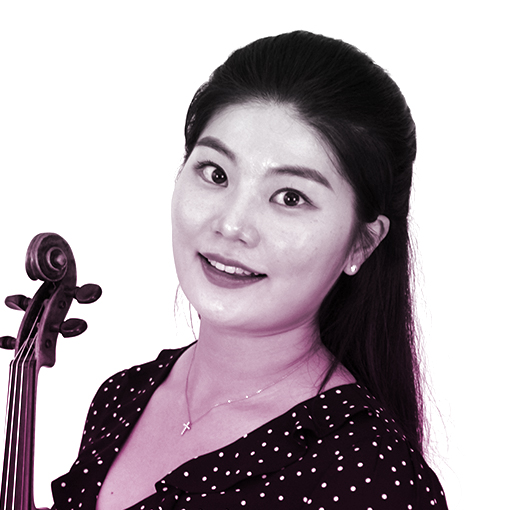Biography
When I was young, I was a jealous second child who followed everything my older brother did. Playing violin was one of them. To get a compliment from my parents, I practised much more than him even though I wasn’t talented in music at all. A few years later, however, I found myself enjoy playing in front of the audience. When I was on the stage, I felt excited more than ever.
I couldn’t have been happier when I first joined in a small youth orchestra at eight. I was counting down the days until the next rehearsal and used to save my pocket money to buy a concert ticket of a renowned symphony orchestra. Collecting posters and programme brochures after the concert was my great pleasure and in putting them on my bedroom wall, I dreamed of becoming a concertmaster.
Chosen as a music prodigy in Seoul Arts Centre at 13, I began training hard with the other students. I practised night and day, and successfully entered Seoul Arts High School and Seoul National University. Nonetheless, I was unhappy with myself at turning into a mechanical player, passing through incessant exams. I missed my childhood when I purely enjoyed music without worries about making mistakes or failure.
Finishing my bachelor’s degree, I started studying relations between music, language, and perception in the brain for my master’s dissertation. Curious about why I kept away from playing with the heart, I dug into the researches of Cognitive Science of Music. I realised that music is no different from verbal language, which has narratives and various emotions in it. Hence, the more I focused on perfect technique rather than being engaged in the stories of the music, the more I failed to elicit natural expression.
In 2016, I flew to the UK to put into practice what I had learnt so far. Studying at the Royal Academy of Music (RAM) with professor Philippe Honoré, I grew in confidence, winning the 1st prize in Winifred Small competition and 2nd prize in Mica Comberti competition. It led me to the bigger stages, playing with London Sinfonietta at the Royal Festival Hall, a Sainsbury Soloists concert at Wigmore Hall, and the Rising Soloist concert at the Royal Northern College of Music.
I am keen on historical performance as well, so I studied Baroque violin at RAM, and took part in several ensemble projects such as Bach Cantata Series concert and Handel Opera Acis and Galatea. After graduating, I trained with principal players of Vienna Philharmonic Orchestra and led International Orchestra Institute Attergau (IOIA) as concertmaster in Vienna. I covered contemporary repertoires at the British Isles Music Festival and gave a string ensemble concert in Bibiena Theatre and Olimpico Theatre in Italy, with Mantua Chamber Orchestra players.
To promote myself, I run my YouTube channel (Violinist Jane Kim), for which I film and edit my own performance videos, so I keep learning recording techniques and sound engineering to improve the quality. I hope to make my own album someday, produced by myself entirely from recording to mastering.
EDUCATION
Royal Academy of Music
London, UK
Seoul National University
Seoul, South Korea
QUICKFIRE QUESTIONS
What do you think concerts of the future should look like?
Audiences are expecting something they can’t experience on the internet or other media. A new interpretation of classic repertoire or creative collaboration with non-musical artists can be a good example of the future concerts. Though it’s one of our roles to retain the authenticity of classical music, I think young musicians shouldn’t be afraid of exploring diverse concepts of stage performance to keep pace with the ever-changing music industry.
Tell us something about yourself that might surprise us.
I sang in a small rock band for three years when I was in university. It’s my secret hobby, but I’ve never given up my passion for singing.
